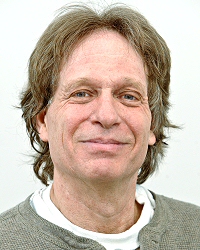Psychology professors Sheldon Solomon, Jeff Greenberg and Tom Pyszczynski offer this look at how the knowledge of mortality drives human culture. The authors’ contention is that fear of death has been a primary driving force of human creativity. They began working together on the elaboration of what they now call ‘Terror Management Theory’ (https://en.wikipedia.org/wiki/Terror_management_theory) in the 1970s when they were doctoral candidates in experimental social psychology.
Although other species (e.g. elephants) appear to mourn their dead, only humans seem fully conscious of their mortality and are unsettled by this knowledge. By concocting a supernatural world they have been able to conjure a sense of control over the randomness and futility of life. In the authors’ view, it was the practice of religious rituals associated with these beliefs that spurred the development of social organization, technology, and progress.
The Worm at the Core is the product of 25 years of research. Drawing from innovative experiments conducted around the globe, Solomon, Greenberg, and Pyszczynski show that the fear of death and the desire to transcend it inspire us to buy expensive cars (don’t laugh!), crave fame, disguise our animal nature and even put our health at risk. They show that the fear of death will lead judges to dole out harsher punishments, will make children react negatively to strange people, and will inflame intolerance and violence. Some of it surprising, some not, but the evidence is convincing. One to read before extinction?
The following titles all make for fascinating reading in this area.
Becker, Ernest The Denial of Death (1974) (https://www.amazon.co.uk/Denial-Death-Ernest-Becker/dp/0029021502/ref=tmm_hrd_swatch_0?_encoding=UTF8&qid=1483222549&sr=1-1)
Rosenberg, Jay F. Thinking Clearly about Death (1998) (https://www.amazon.co.uk/Thinking-Clearly-About-Death-Rosenberg/dp/0872204278/ref=tmm_hrd_title_0?_encoding=UTF8&qid=1483224316&sr=1-1)
Dollimore, Jonathan Death, Desire and Loss in Human Culture (1998) (https://www.amazon.co.uk/Death-Desire-Loss-Western-Culture/dp/0713991259/ref=tmm_hrd_title_0?_encoding=UTF8&qid=1483222685&sr=1-1)
Cave, Stephen Immortality: The Quest to Live Forever and How it Drives Civilisation (2012) (https://www.amazon.co.uk/Immortality-Quest-Forever-Drives-Civilisation/dp/1849541361/ref=tmm_hrd_title_0?_encoding=UTF8&qid=1483222836&sr=1-1)
Scheffler, Samuel Death and the Afterlife (2013) (https://www.amazon.co.uk/Death-Afterlife-Berkeley-Tanner-Lectures/dp/0199982503/ref=sr_1_5?s=books&ie=UTF8&qid=1483225316&sr=1-5&keywords=scheffler+samuel)
Harari, Yuval Noah Sapiens: A Brief History of Humankind (2014) (https://www.amazon.co.uk/Sapiens-History-Humankind-Harari-2015-02-10/dp/B01NH0PCNP/ref=tmm_hrd_swatch_0?_encoding=UTF8&qid=&sr=)
Also in alignment with The Worm at the Core is the thesis of Peter Wessel Zapffe (Peter Wessel Zapffe – Wikipedia) that humans are burdened with a superfluity of consciousness that fills them with fear and apprehension. His tragic view can be read in ‘The Last Messiah‘ (The Last Messiah – Wikipedia)
Check if this title is in your local library by consulting the online catalogue here Home | South Lanarkshire Libraries (sllclibrary.co.uk)
288 pages in Allen Lane
First published 2015
ISBN 978-0241217252

Professor Sheldon Solomon


